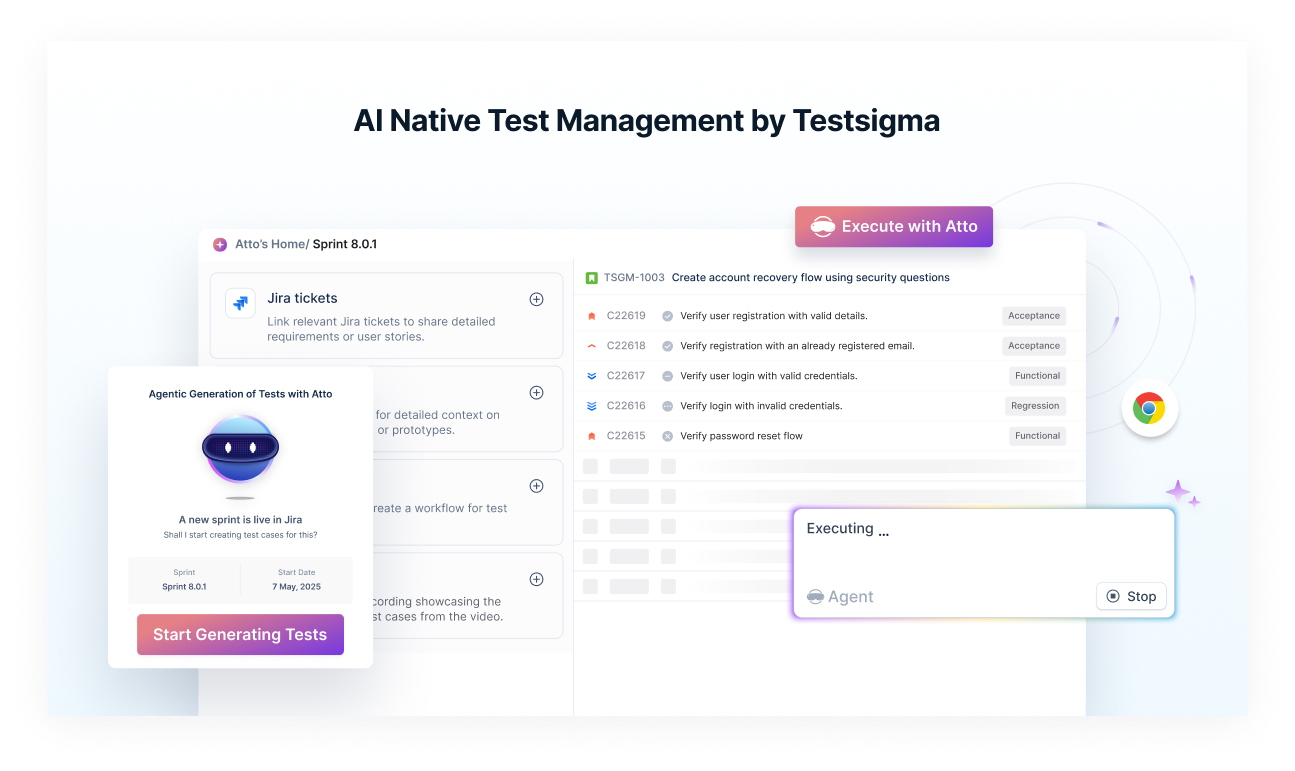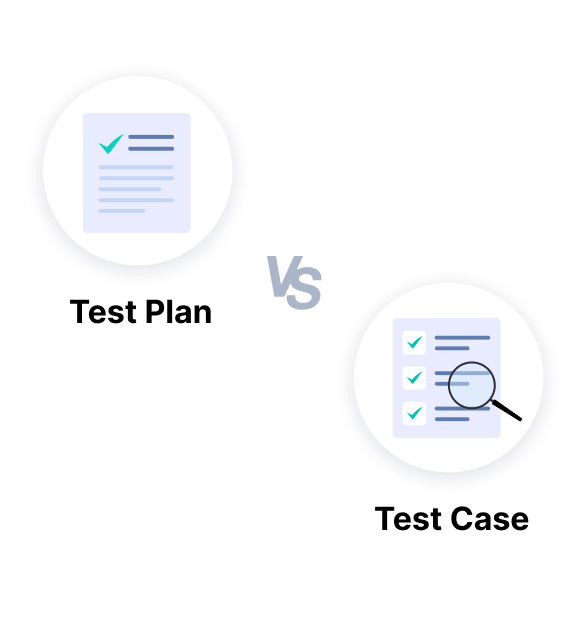We’re thrilled to share valuable insights regarding “A Test Plan vs A Test Case”!
Although both are key aspects of the testing process, they serve different purposes.
Table Of Contents
Overview
What is a test plan?
- A test plan is a strategy for approaching tests in your QA cycle.
What is a test case?
- A test case is a scenario created to test an application’s functionality.
Difference between a test plan and a test case
- Test plan: A high-level document outlining a project’s overall testing approach and strategy.
- Test case: Detailed step-by-step instructions to execute a specific test scenario.
In this blog post, you will clearly understand these concepts, their differences, and their significance in ensuring effective testing and high-quality software delivery.

Test Plan Vs Test Case – Overview
What is a Test Plan?
A test plan provides a broad strategy and approach for testing a software system or application, including objectives, scope, resources, and timelines. The test plan will include details such as the type and number of tests that need to be conducted, the purpose of each test, the required tools, and how test results will be analyzed and reported. It is regularly updated throughout the testing process to reflect any discoveries or changes in strategy.
What is a Test Case?
A test case is a set of detailed instructions or steps necessary to verify the software’s specific functionality or behavior. It is a detailed description of a test’s inputs, operating conditions, and expected outputs. These test cases
- Find software errors, bugs, or problems that developers can fix.
- They help ensure the quality and reliability of the software by providing a systematic approach to testing.
- It is necessary to ensure that each test case is clear and concise, referencing the relevant requirements or features of the software.
- Proper documentation and management of all test cases are necessary for successful testing and quality product delivery.
Test Plan Vs Test Case: Key Differences
| Test Plan | Test Case |
| A high-level document outlining a project’s overall testing approach and strategy. | Detailed step-by-step instructions to execute a specific test scenario. |
| It overviews testing activities’ scope, objectives, resources, and timelines. | Focuses on a specific functionality or feature to be tested. |
| It includes information about test environments, test data, and test deliverables. | It contains particular inputs, expected outputs, and preconditions for the test scenario. |
| Describes the types of testing to be performed (e.g., functional, performance, security). | Specifies the exact steps to be followed during the execution of the test case. |
| A test plan identifies risks and mitigation strategies related to testing activities. | A Test case captures actual results obtained during the execution of the test case. |
Check here – Automated Test Script
Test Plan Vs Test Case: Role in Test Automation
| Test Plan in Test Automation | Test Case in Test Automation |
| Provides an overall strategy and approach for testing a specific software application or system. | Specifies the steps, inputs, and expected outputs for testing a particular feature or functionality of the software application or system. |
| Outlines the scope, objectives, resources, and timelines for testing activities. | Focuses on a specific test scenario or condition to be validated during testing. |
| Helps in identifying the test environment setup requirements and test data needs. | It contains detailed instructions to execute a particular test scenario through automation tools. |
| Guides the testers in understanding the overall testing goals and priorities. | Assists in documenting and tracking the results obtained during testing against the expected results. |
| Typically created at a higher level of abstraction, covering multiple test cases or scenarios. | Built at a lower level of abstraction, addressing individual test scenarios within the larger test plan framework. |
Agentic Test Management with Testsigma
Test Management by Testsigma is an Agentic AI-powered test Management tool built for speed, scalability, and simplicity, enabling teams to manage the entire testing lifecycle in one place.

Test Management by Testsigma goes beyond traditional test management by integrating advanced AI capabilities through Atto, your intelligent AI coworker. Atto spins specialized agents designed to autonomously manage everything from test creation to bug reporting, giving your QA process speed, intelligence, and adaptability. Here is how each of its agents contributes:
- Sprint Planner Agent
Triggers test planning as soon as a JIRA sprint starts
- Generator Agent
The Generator Agent automatically creates test cases from multiple input sources, such as Jira, Figma, Xray, images, videos, documentation, and other files. It also suggests edge case scenarios and ensures nearly 100% test coverage, making test authoring smarter, faster, and more comprehensive.
- Runner Agent
Need quick test validation without scripting? The Executor Agent automatically lets you run manual test cases, which is ideal for sanity checks and low-effort validations.
Move from existing Sheets, Excel to a modern test management platform that requires no setup – Try for Free
- Bug Reporter Agent
The Bug Reporter Agent captures detailed bug reports with steps to reproduce, logs, screenshots, and more. It then files these directly into your issue-tracking tools like Jira, saving hours of manual documentation and improving turnaround time.
Test Management by Testsigma offers a free plan that is always available. This plan best suits solo testers, small teams, startups, etc. To access agentic capabilities, you must upgrade to the Pro plan, which is $8 per monthly user annually.
Conclusion
In conclusion, while test plans and test cases are essential components of the software testing process, they serve different purposes. Understanding these key differences is necessary for effective test planning and execution to ensure complete and efficient software testing.
Frequently Asked Questions
Writing a test case and test plan involves documenting the steps, expected results, and test objectives to ensure thorough testing.
Yes, a test plan should include test cases as they provide detailed instructions for executing tests and verifying system functionality.



